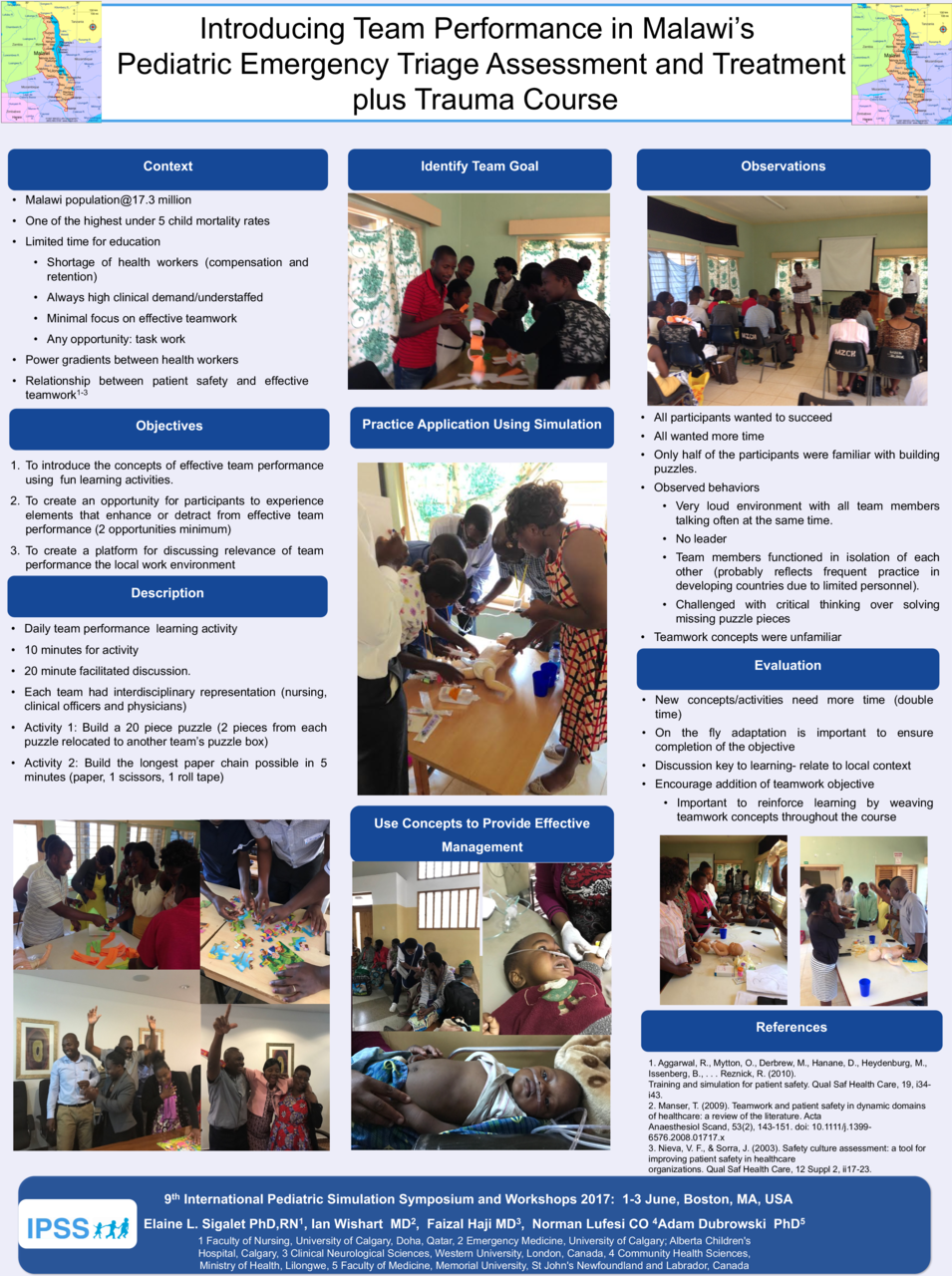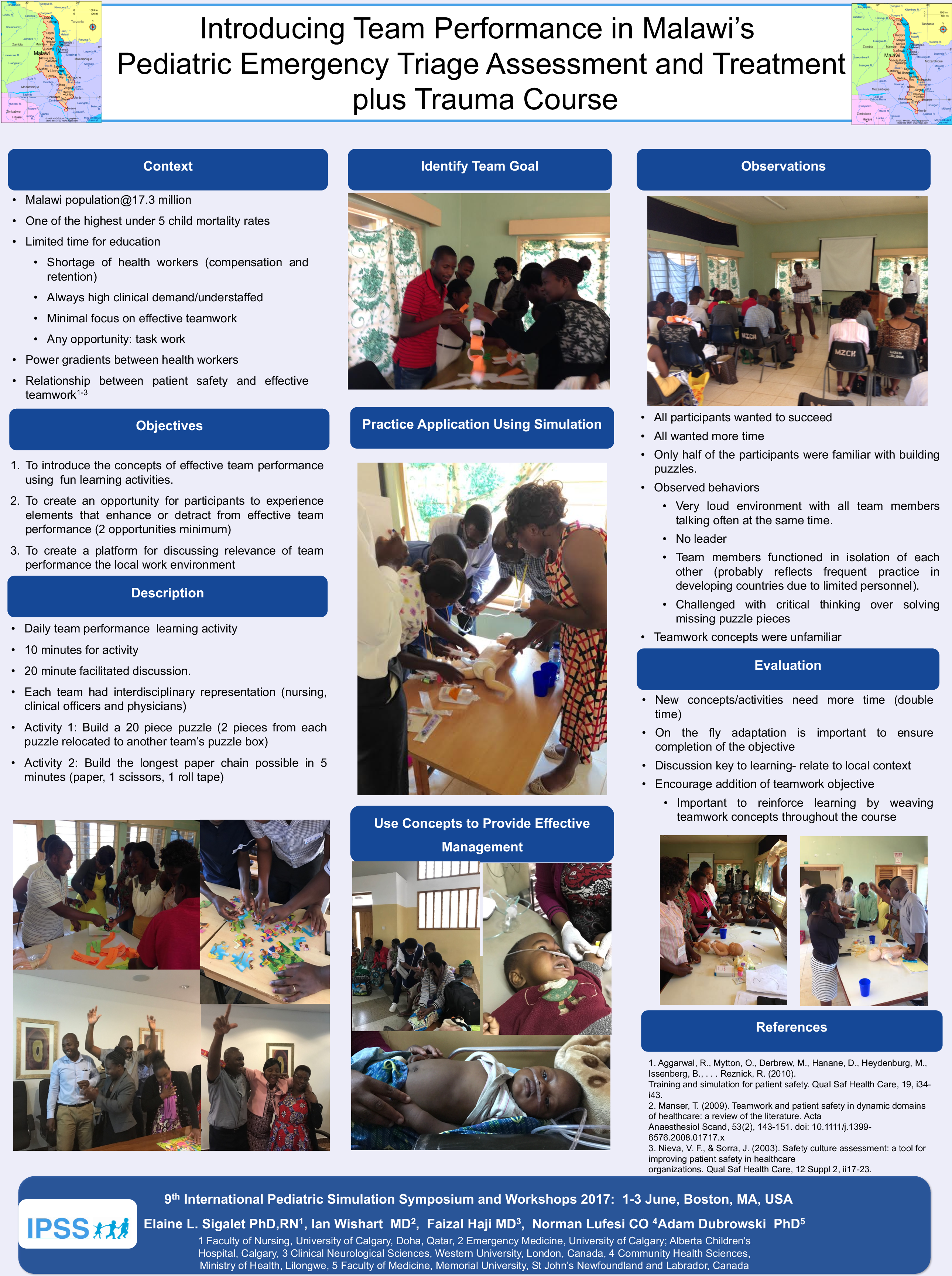Abstract
Presented at the 9th International Pediatric Simulation Symposium and Workshops 2017: 1-3 June, Boston, MA, USA
Context: Training healthcare professionals to engage concepts of effective team performance is important to ensuring patient safety (Aggarwal et al., 2010; Manser, 2009; Nieva & Sorra, 2003). Yet in developing countries, where child mortality remains very high in children under 5 this is not prioritized. Inherent challenges such as limited time for education due to excessive demands of clinical practice results in a sole focus on task-work. Leadership, role clarity, communication, mutual support, and resource utilization were the concepts identified in the objectives of this learning activity.
Description: To introduce concepts of team performance we included a team learning activity during a 2-day train the trainer (TTT) course. On each day a 5-10 minute team activity was followed by a 20-25 minute facilitated discussion. On day one participants were assigned to one of four teams ensuring interdisciplinary representation from nursing, clinical officers and physicians. Teams were asked to complete the build of a 20-piece puzzle, where two pieces of each puzzle were purposely redistributed to another teams puzzle box. The learning objective was “to build your puzzle working as a team” in 10 minutes. On day two the teams were asked to build the longest paper chain possible in 5 minutes using plain white/colored/recycled paper, scissors and scotch tape.
Observation: All participants wanted to succeed and were frustrated by the short timeline. Only half of the participants were familiar with building puzzles. Participants required prompting by faculty to identify and discuss teamwork. Team members functioned in isolation of each other with puzzle activity, which probably reflects frequent practice in developing countries due to limited personnel. Other observed behaviors from day one included a very loud environment with all team members talking often at the same time. Lack of role clarity and challenges with critical thinking over solving missing puzzle pieces provided a great context for discussion of role clarity, communication, and resource utilization. There was a huge improvement in application of teamwork concepts in learning activity on day two suggesting it is possible to expand education focus to include teamwork.
Evaluation: Learning activities focused on effective team performance may take longer in a developing country where concepts/activities are new and task is not familiar. We needed double the allotted time and found that valuable to participant learning. On the fly adaptation is important to ensure completion of the objective to provide a context for discussing successful teamwork strategies. Challenges are always easier to discuss especially when concepts are novel and activity is not familiar. We weaved teamwork concepts throughout the course and added a learning objective in all scenarios to reinforce importance of concepts.






